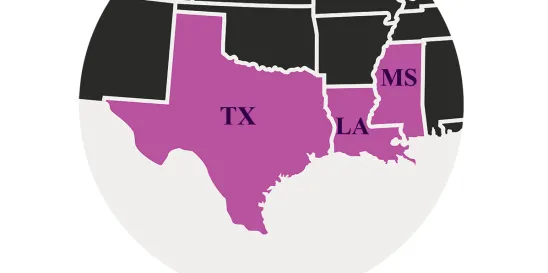In United States v. Grigsby, Docket No. 22-30764, the US Court of Appeals for the Fifth Circuit held that a refund claim based on claimed Internal Revenue Code (IRC) Section 41 credits was erroneous. Cajun Industries LLC, a subchapter S corporation, filed a refund claim that identified four highly specialized construction projects (two refineries and two flood control systems) as “business components,” which, in turn, gave rise to qualified research expenses (QRE). Cajun fabricated the systems under four separate contracts. The Internal Revenue Service (IRS) granted the claim and issued the refund (ultimately to Cajun’s shareholders who are the taxpayers in this case) but later regretted the decision and filed a suit for recovery of an erroneous refund under IRC Section 7405. The decision turned on two main factors:
- A failure to plead
- The funded contract exception under IRC Section 41(d)(4)(H)
PLEADING FAILURE
After discovery, the parties prepared for trial and moved for summary judgment. In its motion for summary judgment (and about a month before trial), for the first time in the litigation, the taxpayers identified certain construction processes as additional “business components,” giving rise to the claimed QRE. The Fifth Circuit held that the district court did not abuse its discretion by declining to consider these new processes as “components” in support of the claimed QRE. In short, the taxpayer was too late and paid the price for its delay. One taxpayer faced a similar problem in 2000 when it sought to put into evidence additional QRE beyond the amount described in its detailed refund claim. There, the Federal Circuit cited the doctrine of variance (i.e., a taxpayer must provide adequate notice of the grounds of the refund claim and any substantial variance from those grounds is not permitted in litigation) and declined to put the additional QRE into evidence. Variance may not have been applicable in the Grigsby case because the refund claim was reviewed and issued, but the taxpayers could have improved their position in court by including the construction processes at the beginning of the litigation or at the latest during discovery.
FUNDED EXCEPTION
The Fifth Circuit then analyzed the four contracts and focused particularly on terms pertinent to the ownership of research results and whether payment to Cajun was contingent upon success of its research. (Regulations promulgated under IRC Section 41(d)(4)(h) provide that research is funded and thus not eligible for the credit if the researcher does not retain substantial rights in its research.) The Court held that three of the contracts awarded sole rights in the research to the customer and removed any substantial rights from Cajun. The fourth contract (firm fixed price) was simply considered “funded” because payment was not contingent upon the success of any research performed by the taxpayer. The Court also rejected a Fairchild risk argument negating the funded nature of this fourth contract.
In general, regarding the three contracts, it’s not clear that Cajun retained zero substantial rights in its research. For example, in one contract Cajun’s customer owned all “rights, title and interest” in the “work product,” defined as “all documents, data, analyses, reports, plans, procedures . . . or other technical manifestations of Cajun’s efforts . . . created by Cajun in the performance of the [contract].” This language grants a broad assignment of rights to the customer, but the contract does not appear to specifically refer to research or any intellectual property, such as patents or inventions. Did Cajun still retain rights to any such research even though it must cede ownership of the documents to its customer? In the similar case from 2000, the Federal Circuit recognized that the taxpayer retained substantial rights to its research even though the US Department of Defense had, in effect, ownership of rights in the research.
Practice Point: When filing your claim, make sure to thoroughly prepare the claim. To avoid any assertion of variance, taxpayers should consider all potential QRE, creditable business components and subcomponents. Whenever there is a claim about the funded nature of a contract effort it’s imperative that the taxpayer considers all parts of a contract or other documents that affect the interpretation of the contract. Negotiation of a contract ensuring the taxpayer retains substantial rights is the best way to avoid the outcome in this case, however, where the taxpayer is already under audit or in litigation, it’s important to understand that just because a contract might award ownership in research results to the customer of the taxpayer, it does not mean the taxpayer has been dispossessed of substantial rights in those results.




 />i
/>i

